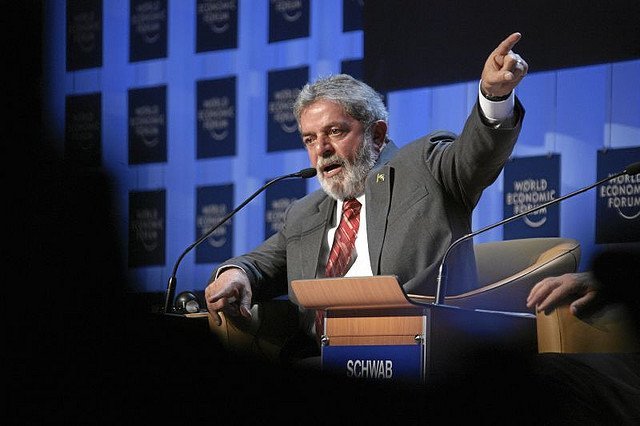
Stability of Lula’s Two Terms Seen as High Point in Governance That Led to Brazilian Economic Boom
Democracy, elections and voting at Democracy Chronicles
Prime Economic Newspaper Underlines Mario Garnero’s Historic Role in Building Trust Prior to Brazil’s 2002 Presidential Elections
As Brazil neared financial turmoil in 2002, Mario Garnero led efforts to soothe global markets towards the election of Luiz Inacio Lula da Silva, the man who governed Brazil for two presidential mandates (2003-2006; 2007-2010), a period of unprecedented economic growth with social inclusion in Brazilian History.
Brasil Economico, a leading business and economics daily, is running a series of special pieces on that fateful year of 2002 and how alliances were forged to allow for a following decade of stability and prosperity in Brazil.
Garnero, who founded Brasilinvest, Brazil’s pioneer merchant bank, was an old acquaintance of Lula from the days the former President led the Metalworkers Union in the outskirts of Sao Paulo. Garnero then chaired Brazil’s Automakers Association. As the two men negotiated the improvement of capital-labor relations in Brazil in the late 1970s, a basis for common trust was launched.
Such trust proved instrumental as Lula, defeated in previous major elections, ran a fourth time for Brazil’s presidency in 2002.
The prospects of a Lula win scared global markets. Whenever Lula took the lead in public opinion polls, the real depreciated further against all international currencies and risk premium on Brazil soared to 2,500 points.
Some investment firms even devised elaborate statistical tools that registered Lula as a vector for instability and likely default – the so-called “lulameter”.
The leadership of Lula’s Workers Party (PT, in its Portuguese language acronym) approached Garnero and asked him to carry out a “policy of proximity” with Wall Street, multilateral financial institutions and the Washington establishment.
The chairman of Brasilinvest, who asserts he was moved by “a sense of patriotic duty”, liaised with Republican Party chiefs, rating agencies, investment banks and the policy community so Lula could be seen in a more favorable light.
One of the cornerstones of such strategy gained shape as the celebrated “Letter to the Brazilian People” – a firm commitment on the part of the Workers Party to honor international contracts.
During the Lula Presidency, Brazil would become a net international creditor, holding foreign exchange reserves in excess of US$ 370 billion – and thus feature as a member of the BRIC group of growth markets. The economic accomplishments of Lula’s Administration helped elect his chosen successor, current President Dilma Rousseff.
Contact:
Anamelia Meirelles
forumamericas@forumamericas.org.br
T: +55 (11) 3094-7984
SOURCE Forum das Americas
Leave a Reply